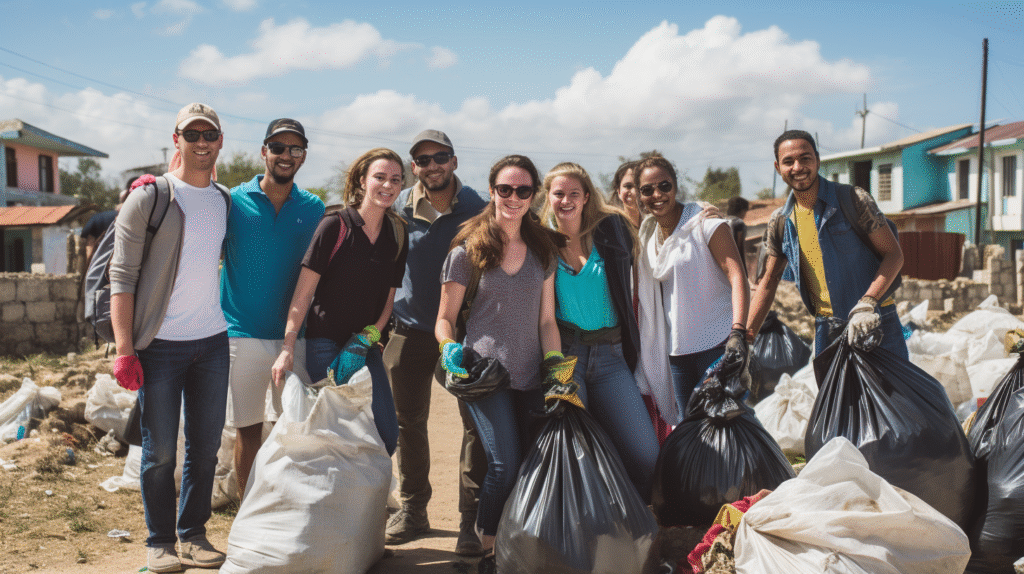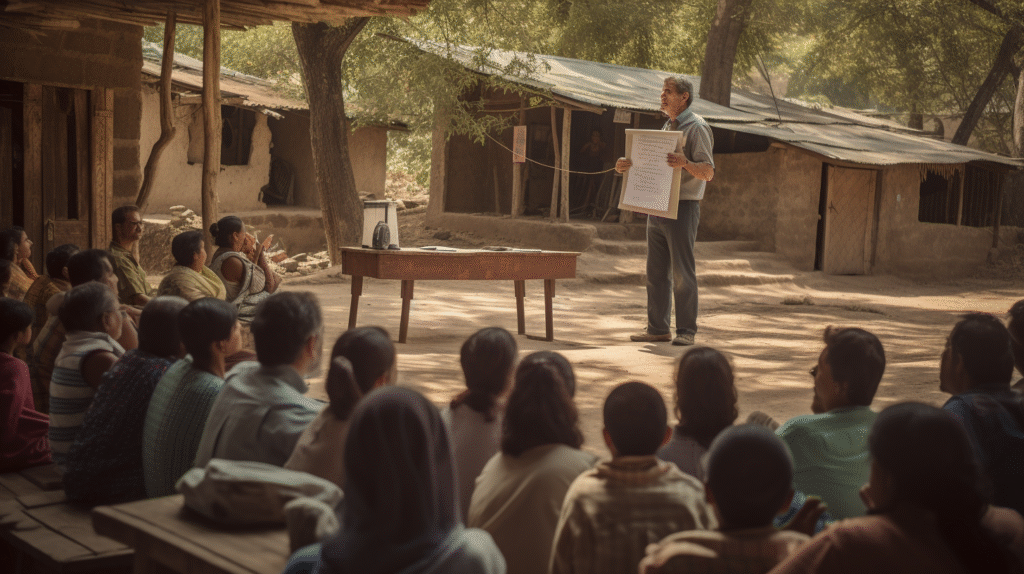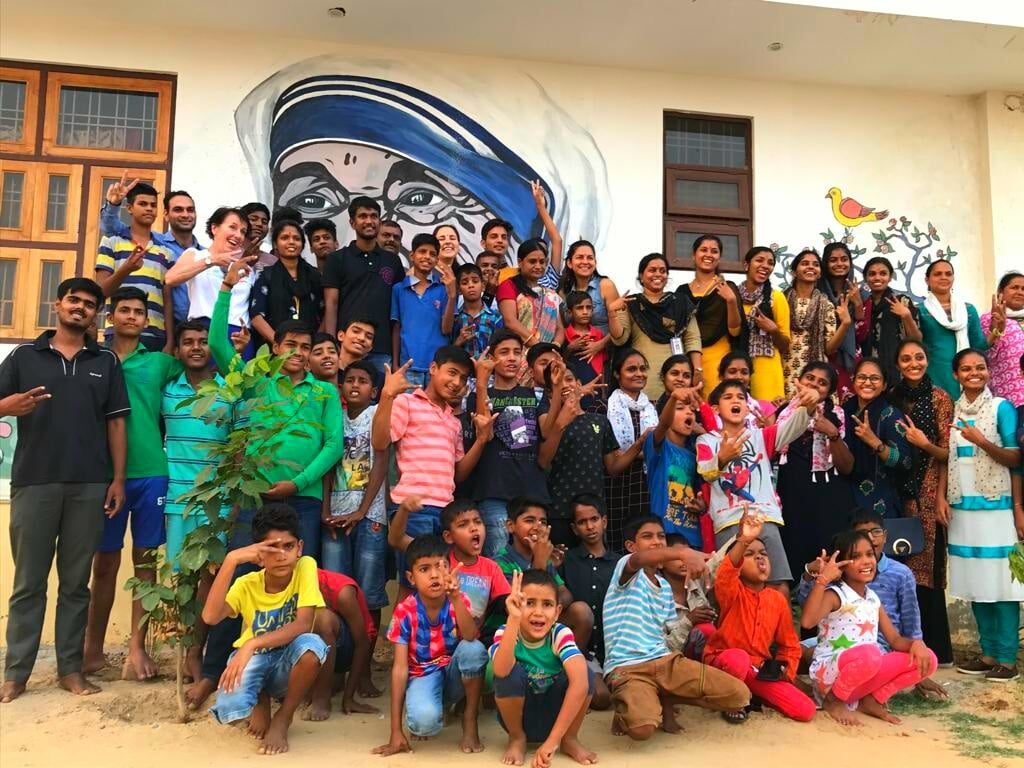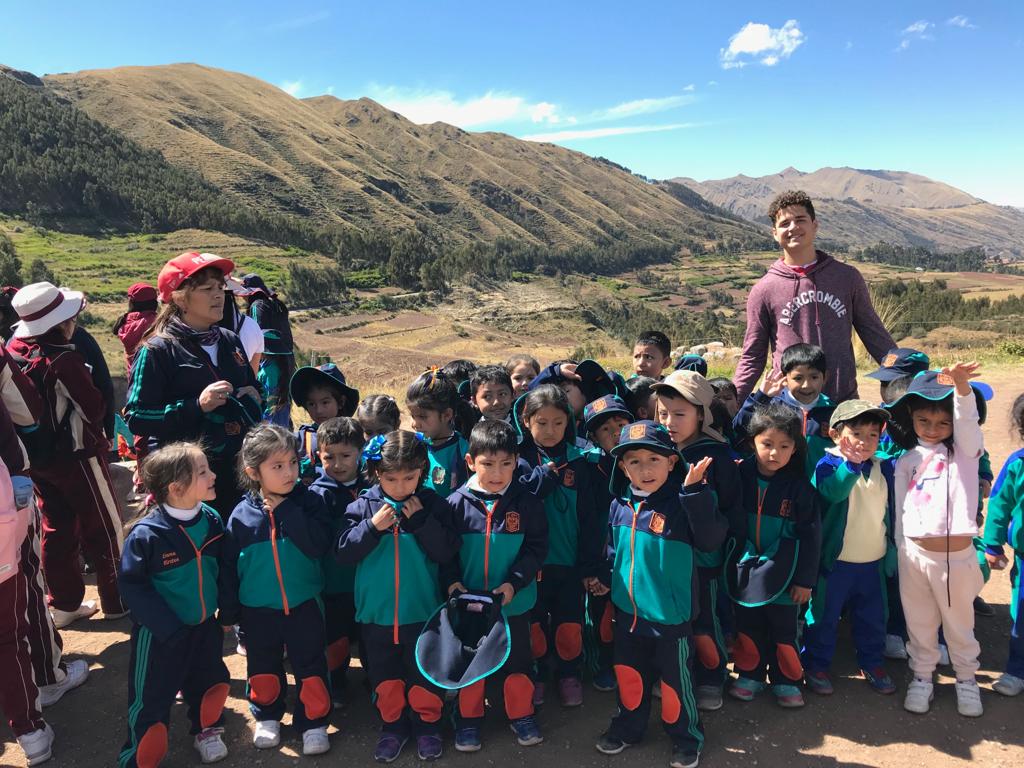Hey there! Are you passionate about making a positive impact on your community and promoting social justice? In today’s world, where inequality and injustice still persist, it’s crucial to take action and support causes that aim to create a fair and inclusive society. One powerful way to contribute to social justice is through volunteering and community development.
In this article, we’ll explore how volunteering and community development can support social justice initiatives. We’ll delve into the importance of social justice, discuss ways to find the right volunteer opportunities, and explore how community development can create lasting change. So, grab a cup of coffee, get comfortable, and let’s dive into this exciting journey of making a difference!

“You must be the change you wish to see in the world.” – Mahatma Gandhi
Understanding Social Justice
Defining Social Justice
Social justice is a concept that has gained significant attention in recent years, as more and more people recognize the need for equality and fairness in society. But what does social justice really mean? At its core, social justice refers to the belief in a society where all individuals are treated equally and have access to basic human rights, regardless of their race, gender, socioeconomic status, or other factors. It is about promoting fairness and fighting against the systemic barriers that prevent marginalized communities from thriving.
Importance of Social Justice
Social justice is a fundamental pillar of a healthy and harmonious society. Here’s why it’s important to understand and support social justice:
- Promotes Equality: Social justice promotes the idea that everyone should have equal opportunities and the right to lead a dignified life. By advocating for social justice, we work towards dismantling discriminatory systems and ensuring that every individual has a fair chance to succeed.
- Addressing Inequality: Social justice is essential for addressing the deep-rooted inequalities that exist in society. It aims to challenge the privileges enjoyed by some groups while others face discrimination. By actively supporting social justice, we can work towards creating a more inclusive society for all.
- Empowering Marginalized Communities: Social justice is closely tied to empowering marginalized communities. By advocating for their rights and fighting against systemic oppression, we can help uplift these communities and provide them with the resources and support they need to thrive.
- Promotes Peace and Stability: In societies where there is systemic injustice and inequality, social unrest can often prevail. By working towards social justice, we contribute to a more harmonious and stable society, as people feel heard and their rights are protected.
It’s important to recognize that social justice is a multifaceted concept that touches on various aspects of society. In the next section, we will explore how volunteering can play a role in supporting social justice causes.

Volunteering for Social Justice
Volunteering is a powerful way to make a positive impact and support social justice causes. It allows individuals to actively contribute to their communities and work towards a more equitable society. Here are some essential aspects to consider when volunteering for social justice:
Finding the Right Volunteer Opportunities
When it comes to social justice, there are countless volunteer opportunities available. It’s crucial to find a cause that aligns with your values and interests. Consider the following tips to find the right volunteer opportunity:
- Research: Take time to research different organizations and initiatives that focus on social justice. Look for opportunities that address the specific issues you care about, whether it’s racial equality, gender equity, LGBTQ+ rights, or environmental justice.
- Local Engagement: Get involved in your local community by collaborating with grassroots organizations. They often have a deep understanding of the community’s needs and can provide valuable insights into social justice issues.
- Skills and Expertise: Assess your own skills and expertise to find volunteer opportunities that allow you to make the most impact. For example, if you have a background in education, you could volunteer as a tutor or mentor for marginalized youth.
Organizations Supporting Social Justice
Many organizations are dedicated to promoting social justice and rely heavily on volunteers to carry out their mission. Consider getting involved with organizations like:
- Amnesty International: A global organization that advocates for human rights and supports individuals and communities affected by injustice and oppression.
- Black Lives Matter: A movement and organization focused on fighting against systemic racism and violence towards Black individuals and communities.
- ACLU: The American Civil Liberties Union is dedicated to protecting and defending the constitutional rights of individuals, particularly marginalized communities.
Volunteering Abroad
If you’re passionate about social justice and interested in experiencing different cultures, volunteering abroad can be a life-changing experience. It provides an opportunity to learn about international social justice issues and contribute to communities in need. Here are some key considerations:
- Reputable Organizations: Research and choose reputable organizations that have a track record of ethical volunteer placements. Look for organizations that collaborate with local communities, respect their culture, and prioritize long-term sustainability.
- Cultural Sensitivity: When volunteering abroad, it’s essential to approach cultural differences with respect and sensitivity. Take the time to learn about local customs, traditions, and values to ensure that your efforts have a positive impact.
- Skills Transfer: Consider how your skills and expertise can be utilized effectively in a different cultural context. Find projects that allow you to share your knowledge while respecting and learning from the local community’s expertise.
Volunteering for social justice is not only a way to make a difference in the world but also an opportunity for personal growth and learning. By getting involved in local or international initiatives, you can contribute to creating a more equitable society. Remember, even small actions can have a significant impact when it comes to social justice. As Nobel Peace Prize laureate, Leymah Gbowee, once said, “Each one of us can make a difference. Together we make change.”

Community Development for Social Justice
Community development plays a crucial role in promoting social justice. It focuses on empowering communities, fostering inclusivity, and creating sustainable change. By addressing systemic issues and working collaboratively with local stakeholders, community development initiatives can help create a more just and equitable society. In this section, we will explore the different aspects of community development for social justice.
Identifying Community Needs
The first step in community development for social justice is identifying the specific needs of the community. This involves conducting thorough research, engaging with community members, and understanding their experiences and challenges. By actively listening to the voices of the community, we can gain insight into the areas that require intervention and support.
Collaborating with Local Stakeholders
Community development is a collaborative effort that requires working closely with local stakeholders, such as community leaders, organizations, and institutions. By involving them in the decision-making process, we can ensure that the initiatives are aligned with the community’s values, culture, and aspirations. This collaborative approach also facilitates greater ownership and sustainability of the projects.
Creating Sustainable Development Projects
Sustainable development projects are essential for fostering long-term change in marginalized communities. These projects aim to address root causes, empower individuals, and build capacity within the community. Examples of sustainable projects include:
- Establishing vocational training centers to provide skills to unemployed individuals.
- Creating community gardens to promote food security and self-sufficiency.
- Implementing microfinance programs to support small businesses.
These projects not only provide immediate relief but also empower individuals and create opportunities for long-term growth.
“Community development is about supporting and empowering communities to create change from within.” – John Smith, Social Justice Advocate
Community development for social justice requires a multi-faceted approach that addresses systemic issues and promotes equality and inclusivity. It is an ongoing process that requires commitment, collaboration, and a deep understanding of the unique needs and aspirations of the community. Through these efforts, lasting change can be achieved, fostering a society where all individuals have equal opportunities to thrive.
Supporting Marginalized Communities
As socially conscious individuals, it is important for us to support marginalized communities and work towards social justice. Marginalized communities often face systemic discrimination and lack equal access to resources, opportunities, and rights. By advocating for their rights and actively supporting them, we can help create a more inclusive and equitable society. Here are some ways you can support marginalized communities:
Advocacy and Awareness Campaigns
Advocacy and awareness campaigns play a crucial role in bringing attention to the issues faced by marginalized communities and mobilizing support for their rights. By raising awareness and educating others about these issues, we can help combat societal biases and prejudices. Social media platforms are excellent tools for spreading messages, empowering individuals, and organizing campaigns. By using hashtags, sharing informative articles, and engaging in conversations, we can amplify the voices of marginalized communities and challenge the status quo.

Promoting Equal Access to Resources
One of the key barriers faced by marginalized communities is the lack of equal access to resources such as education, healthcare, housing, and employment opportunities. To support them, we can contribute to initiatives that aim to bridge these gaps. For example, you can donate to organizations that provide scholarships or mentorship programs for marginalized students, support initiatives that provide healthcare services in underserved areas, and promote fair hiring practices in your workplace.
Educational Initiatives
Education plays a pivotal role in breaking the cycle of poverty and empowering marginalized communities. Supporting educational initiatives can make a substantial impact on their lives. You can volunteer to tutor students from marginalized communities, donate educational resources, or even assist in building schools in underserved areas. Additionally, advocating for curriculum changes that include diverse perspectives and histories can promote inclusivity and counter stereotypes.
In addition to these specific actions, it is crucial to approach supporting marginalized communities with empathy and respect. Listening to their experiences, learning from their stories, and amplifying their voices are essential parts of the journey towards social justice. Every effort, no matter how small, can contribute to creating a more equitable and inclusive society.
Remember, you are not alone in this journey. There are numerous organizations and individuals dedicated to supporting marginalized communities. By joining forces and working collaboratively, we can make a significant and lasting impact.
Funding and Fundraising for Social Justice
When it comes to supporting social justice, funding and fundraising play a crucial role in sustaining and expanding initiatives. Financial resources are necessary to implement meaningful projects and reach marginalized communities. If you are passionate about social justice and want to contribute to positive change, here are some ways you can get involved in funding and fundraising efforts:
Grant Opportunities
- Grants are an excellent way to secure funding for social justice projects. Grant opportunities are often offered by foundations, government agencies, and nonprofit organizations. These grants are specifically designed to address issues related to social justice.
- Start by researching grant opportunities that align with your cause. Look for foundations and organizations that prioritize social justice initiatives. Many websites and online databases provide comprehensive listings of grants available for different causes.
- Put together a well-written grant proposal that clearly outlines your project’s goals, objectives, and the impact it aims to achieve. Highlight the social justice aspect and demonstrate how your project addresses systemic inequalities.
- Remember to follow the guidelines provided by the grant-giving organization and submit your application before the deadline. Be prepared to provide additional documentation or answer any questions they may have during the review process.
Crowdfunding Platforms
- Crowdfunding platforms have gained immense popularity in recent years as a means of raising funds for various causes, including social justice. These platforms allow individuals and organizations to create online fundraising campaigns and promote them to a broad audience.
- Choose a reputable crowdfunding platform that specializes in social justice causes. Some popular platforms include Kickstarter, GoFundMe, and IndieGoGo. These platforms provide http://a-broader-view-wordpress-b4ae5c-147-93-178-254.traefik.me/wp-content/uploads/2023/05/Footer-1.png-friendly interfaces and support various payment options.
- When creating your crowdfunding campaign, tell a compelling story that resonates with potential donors. Explain the social justice issue you’re addressing and why it’s important. Use visuals and videos to engage donors and show them the impact their contributions can make.
- Promote your crowdfunding campaign through social media, emails, and other digital channels. Reach out to your network, friends, and family members to spread the word. Encourage them to share your campaign with their own networks to maximize your fundraising efforts.

Organizing Fundraising Events
- Hosting fundraising events can be a fun and effective way to raise funds for social justice initiatives. Whether it’s a charity auction, a benefit concert, or a community walkathon, fundraising events bring people together and generate enthusiasm for the cause.
- Start by identifying the type of fundraising event that aligns with your cause and target audience. Consider the logistics, budget, and potential partnerships or sponsorships that can enhance your event’s success.
- Reach out to local businesses, community leaders, and organizations that share a commitment to social justice. They may be willing to sponsor your event or donate resources and services.
- Use social media, local media outlets, and community bulletin boards to promote your event. Create visually appealing flyers, share engaging posts, and encourage people to attend, donate, or volunteer.
- During the event, share stories and testimonials that highlight the impact of social justice initiatives. Thank your donors and supporters, and emphasize how their contributions make a difference. Don’t forget to provide multiple ways for attendees to donate, whether it’s through cash, checks, or digital payment options.
By utilizing these funding and fundraising strategies, you can become an active participant in supporting social justice causes. Remember, every contribution counts, and together we can create lasting change. So, roll up your sleeves, gather your resources, and make a positive impact on society!
Measuring Impact and Success
One of the crucial aspects of supporting social justice through volunteering and community development is measuring the impact and success of your efforts. By tracking and evaluating the outcomes of your projects, you can ensure that you are making a real, positive difference in the lives of marginalized communities. Here are some strategies and tools to help you measure the impact and success of your social justice initiatives:
Monitoring and Evaluation
Implementing a robust monitoring and evaluation process allows you to track the progress of your projects and assess their effectiveness. Consider the following steps to establish an effective monitoring and evaluation system:
- Set clear objectives: Start by defining the specific goals and objectives of your project. These can include improving access to education, healthcare, or addressing systemic inequalities.
- Develop indicators: Identify specific metrics that will help you measure progress towards your objectives. For example, if your project aims to reduce poverty, an indicator could be the percentage decrease in the poverty rate in the targeted community.
- Collect data: Gather data through surveys, interviews, focus groups, and other data collection methods. Ensure that you collect both qualitative and quantitative data to gain a comprehensive understanding of the project’s impact.
- Analyze data: Use data analysis techniques to interpret and make sense of the information you have collected. Look for patterns, trends, and correlations that can provide insights into the effectiveness of your initiatives.
- Review and adjust: Regularly review your monitoring and evaluation findings and use them to make informed decisions about project adjustments or improvements. This iterative process allows you to continuously refine your strategies and maximize your impact.

Collecting Data and Feedback
To obtain meaningful data and feedback, consider the following approaches:
- Surveys: Design and distribute surveys to collect quantitative data from project participants and beneficiaries. This can help you measure changes in attitudes, behaviors, or living conditions.
- Interviews and focus groups: Conduct interviews and set up focus groups to gather qualitative data. These methods allow participants to share their experiences and provide insights into the project’s impact on their lives.
- Case studies: Use case studies to dive deep into the individual stories and experiences of beneficiaries. This approach provides rich and detailed information that can illustrate the project’s impact on a personal level.
- Feedback mechanisms: Establish channels for ongoing feedback from project participants and community members. Encourage open and honest communication to better understand their needs, concerns, and suggestions for improvement.
Case Studies of Successful Projects
Examining case studies of successful social justice projects can provide valuable insights and inspiration. Here are a few examples:
- The Right to Education: The “Room to Read” project implemented in several developing countries has successfully increased access to education for girls. Through partnerships with local communities, they have built schools, provided textbooks, and trained teachers, leading to improved literacy rates and increased enrollment of girls in schools.
- Advocacy for Gender Equality: The “HeForShe” campaign by UN Women has effectively engaged men and boys in advocating for gender equality. By encouraging men to become advocates for women’s rights, the campaign has created a strong impact and mobilized communities towards achieving gender equality.
- Sustainable Agriculture: The “Farming for Change” initiative in rural communities promotes sustainable farming practices, empowering farmers and ensuring food security. This project has increased farmers’ income, improved access to nutritious food, and reduced reliance on chemical inputs.
By studying successful projects, you can identify best practices and strategies that have proven effective in creating positive social change. Adapt and apply these lessons to your own initiatives.
Remember, measuring impact and success is an ongoing process. Continuously assess your efforts, learn from the data collected, and make necessary improvements. By doing so, you can optimize your efforts and make a lasting difference in the pursuit of social justice.
Creating Lasting Change
When it comes to supporting social justice, one of the most important aspects is creating lasting change. While volunteering and community development are crucial steps in the process, it is essential to focus on strategies that have a long-term impact. Here are some effective ways to create lasting change and make a difference in the fight for social justice:
Policy Advocacy and Reform
- Working towards policy advocacy and reform is an effective way to create lasting change. By engaging with policymakers and advocating for laws and regulations that promote equality and justice, you can address systemic issues and bring about sustainable change.
- This can include advocating for policies that protect the rights of marginalized communities, promote equal access to resources, and address social inequalities.

Collaborating with Government Agencies
- Collaborating with government agencies is another important step in creating lasting change. By working together, you can leverage resources and create partnerships that can have a significant impact on social justice issues.
- This can involve collaborating with agencies such as the Department of Social Welfare or the Ministry of Education to develop initiatives and programs that address the needs of marginalized communities.
Long-Term Sustainability
- To ensure lasting change, it is crucial to focus on long-term sustainability. This means developing strategies and initiatives that can be sustained beyond short-term projects or volunteer efforts.
- It’s important to think about the long-term impact of your actions and how they can be sustained even after your involvement has ended.
In conclusion, creating lasting change is essential for supporting social justice. By engaging in policy advocacy and reform, collaborating with government agencies, and focusing on long-term sustainability, you can make a significant impact on social justice issues. Remember, change takes time, but by working together, we can create a fair and just society for all.
Conclusion
In conclusion, supporting social justice through volunteering and community development is a powerful way to make a meaningful difference in the world. By understanding the principles of social justice and engaging in volunteer work, we can contribute to creating a more inclusive, equal, and just society.
Through volunteering, we not only have the opportunity to help those in need, but also to learn and grow as individuals. By actively engaging with different communities and organizations, we can gain a deeper understanding of the issues they face and develop empathy and compassion for others.
Community development plays a crucial role in promoting social justice. By identifying the needs of marginalized communities and working together with local stakeholders, we can create sustainable projects that address root causes and empower individuals and communities to thrive.
Supporting marginalized communities requires advocacy, awareness campaigns, and efforts to promote equal access to resources. By raising our voices and standing up for those who are marginalized, we can help to dismantle systemic barriers and create a more equitable society.
Fundraising is essential to support social justice initiatives, and there are various avenues available, such as grants, crowdfunding platforms, and organizing fundraising events. By harnessing the power of collective action and mobilizing resources, we can ensure the sustainability and impact of our projects.
Measuring the impact and success of our efforts is crucial to drive continuous improvement and accountability. Monitoring and evaluation, along with collecting data and feedback, enable us to understand the outcomes of our work and make informed decisions.
Creating lasting change requires not only project-level interventions, but also policy advocacy and collaboration with government agencies. By influencing policies and systems, we can address systemic issues and create a more just society for all.
In conclusion, supporting social justice through volunteering and community development is a collective responsibility. Each one of us has the power to make a difference, and by coming together, we can create a more equitable and just world for future generations. So, let us take action, stand up for what is right, and contribute to the movement for social justice.

Frequently Asked Questions
- What is social justice?Social justice refers to the fair and equal distribution of wealth, opportunities, and privileges within a society, with a focus on addressing and rectifying social inequalities and marginalization.
- What is volunteering?Volunteering is the act of giving one’s time, skills, and services for the betterment of others or a cause without expecting financial compensation in return.
- How can volunteering support social justice?Volunteering plays a vital role in supporting social justice as it gives individuals the opportunity to actively contribute to community development, raise awareness about social issues, and advocate for change. By volunteering, individuals can help empower marginalized communities, promote equality, and work towards creating a more just and inclusive society.
- What types of volunteering activities can support social justice?There are various volunteering activities that can support social justice, such as mentoring disadvantaged youth, assisting in community development projects, participating in activism and advocacy campaigns, offering pro bono services to underserved communities, and supporting nonprofit organizations focused on social justice causes.
- How can community development contribute to social justice?Community development involves engaging and empowering individuals within a community to address social issues, improve living conditions, and create sustainable change. By facilitating community development initiatives, social justice can be promoted through the empowerment of marginalized groups, improvement of access to resources, and the creation of a more equitable society.



